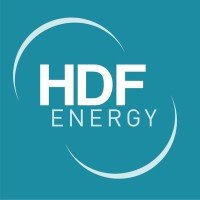Minster Ryan signs joint declaration that will see Ireland and Germany cooperate with respect to green hydrogen

Green hydrogen is set to play a crucial role in decarbonising our energy system
The German-Irish Chamber of Industry and Commerce has been a key enabler of this process. Eamon Ryan has signed a Joint Declaration of Intent on cooperation in the field of green hydrogen between the Irish Department of the Environment, Climate and Communications and the German Federal Research Ministry.
Mario Brandenburg will formalise cooperation in respect of green hydrogen between Ireland and Germany, and enable it to expand in the coming years. The German-Irish Chamber of Industry and Commerce has been a key enabler of this process.
One of the main challenges to the supply of green hydrogen is the availability of renewable energy to produce it. Ireland has one of the best offshore renewable energy resources in the world and realising the full potential of this resource will be a major opportunity for green hydrogen production. Momentum is building behind green hydrogen in Ireland, which is set to play a crucial role in decarbonising our energy system.
The government has set a target of 5GW offshore energy by 2030 and is creating the environment for the development of a hydrogen industry by targeting an additional 2GW of offshore wind for the production of green hydrogen. Two gigawatts of Renewable Hydrogen capacity could provide up to 6TWh (Terawatt Hour) of zero-carbon energy. This could deliver just over 10% of the electricity sector’s total final energy needs, 21% of industry needs or 6-7% of total transport needs.
The government is currently developing a National Hydrogen Strategy, which is due to be finalised shortly. This strategy will set out our vision for how hydrogen will be produced and used in Ireland, providing certainty to investors and the industry as to how hydrogen will be deployed in the Irish energy system. If Ireland can harness the opportunities offered by hydrogen, we can achieve our goals of a zero-carbon, secure energy system and become an energy exporter.
Ryan said, “This is a vote of confidence in Ireland’s energy potential and specifically our capacity to produce green hydrogen from our excess energy. Our wind resources are amongst the best in the world. Hydrogen represents one of the best ways of capturing these resources and sharing them with European partners including Germany. For this reason, I had no hesitation in signing this DOI and I look forward to close cooperation with our friends in Germany.”
Mario Brandenburg said, “Germany is and will remain a net importer of energy in the foreseeable future. This is why research partnerships with countries with abundant renewable energy sources like Ireland are so important for Germany and the EU at large. The results of this cooperation between Ireland and Germany will help accelerate the EU’s energy transition and will help lead to a more energy-secure Europe.”
With a sea area approximately seven times the size of our landmass, Ireland has one of the best offshore renewable energy resources in the world. Ireland’s coast is one of the most energy productive in Europe, meaning Ireland has the potential to become a net exporter of green hydrogen in the longer term.
The German Hydrogen Strategy estimates that Germany will be able to produce around 20-30 percent of their hydrogen needs indigenously by 2030. Given Ireland’s abundance of offshore renewable resources, there are significant opportunities for future trade in this area. Ireland has a proven track record of delivering renewables; a trusted reputation in the business and international community; and close alignment and coherence on energy policy, markets, and regulations because of our long-standing membership of the European Union. This creates the right conditions for German-Irish cooperation on the development of green hydrogen to thrive.
